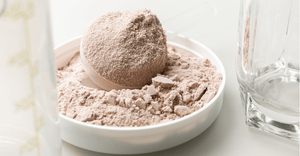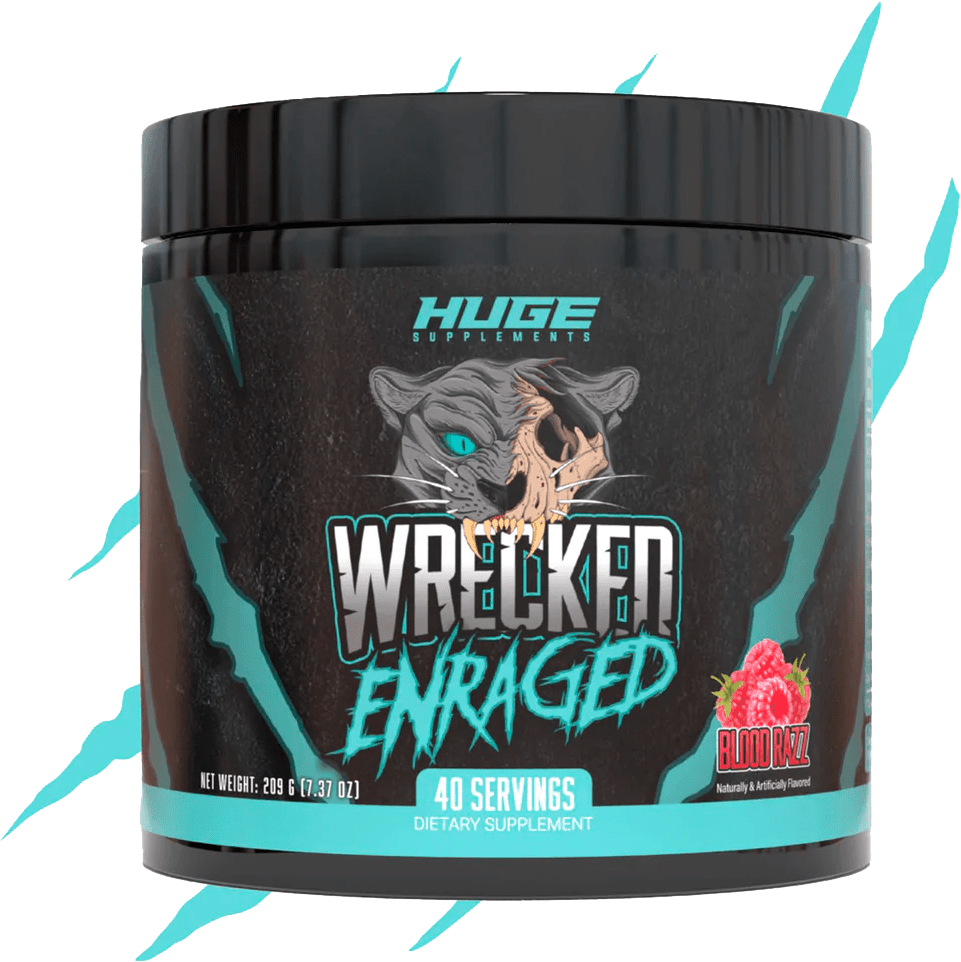How Long Does Creatine Take to Work? Results Timeline Explained
Creatine has earned its spot as one of the most trusted supplements for athletes, but one question always comes up: “How long does it take for creatine to work?”
It’s an important question! In today’s article, we’ll break down when you can expect to start seeing results, how creatine works behind the scenes, and the key factors that influence the timeline.
What Is Creatine?
Creatine is a natural compound that the body produces from the amino acids glycine, methionine, and arginine. (1) This process happens primarily in the liver, kidneys, and pancreas. You can also get creatine from your food, mainly from sources like red meat and fish.
It is primarily stored in the muscles and is crucial in energy production. Your body uses it to produce quick energy, especially during short, intense activities like weightlifting or sprinting.
Many athletes, fitness enthusiasts, and bodybuilders take creatine to boost their muscle stores, allowing for improved strength, endurance, and faster recovery.
It’s one of the most researched and effective sports ingredients and has become a staple supplement for every athlete looking to maximize performance.
How Creatine works in the body
Creatine boosts your muscles' ability to produce energy. During high-intensity exercises like lifting weights, your muscles rely on a quick energy source called adenosine triphosphate (ATP).
However, your body’s natural ATP stores are limited and can deplete within seconds of intense activity. But, when you supplement with creatine, it increases the phosphocreatine levels in your muscles.
Phosphocreatine regenerates ATP, giving your muscles a fresh energy boost. This will improve your exercise performance as you can lift heavier or perform extra reps before the fatigue kicks in.
How Long Does Creatine take to work?
When starting this supplement, one of the most common questions is, “How long does creatine take to work?”
While it’s highly effective, creatine doesn’t work instantly. It typically takes between 1 to 4 weeks for creatine to work. It depends on how saturated your muscles are with creatine.
If you follow a loading phase, your muscles can become saturated more quickly, and you might start noticing improvements after about a week. However, if you take the standard daily dose, it will take a bit longer, up to four weeks.
The time frame also depends on individual factors, such as your current creatine levels, diet, and exercise intensity. Staying consistent with your supplementation is the key to achieving optimal results.
Does Loading Creatine Help It Work Faster?
Yes, loading creatine can help it work faster. A loading phase has you taking a higher dose of creatine (20 grams per day) for about 5 to 7 days.
Because you provide your body with a lot of creatine during this period, your muscles quickly reach full saturation. (2) This rapid increase in muscle creatine levels means it can work in about a week.
Remember, a loading phase isn't a must. It's simply an effective option for those who want creatine to work faster. Whether you decide to load or not, consistency will always be key to long-term benefits from creatine.
Signs That Creatine Is Working
Once you've started taking creatine, you'll want to know when it's actually doing its job. As your muscles become saturated, there are clear signs that it’s starting to take effect.
Here are the tell-tale signs that creatine is working:
Improved exercise performance
One of the first signs that creatine is working is an improvement in your workout performance. (3) You'll notice you can lift heavier weights, perform more reps, or sustain high-intensity activities for longer. This is because creatine boosts your muscles' ability to produce ATP, allowing you to push harder during exercise.
Increased muscle volume
As your muscles begin to store more creatine, they draw in additional water, leading to a fuller look. While the initial size increase is primarily due to water retention, it indicates that your muscles are saturated with creatine and getting ready for growth.
Faster recovery between workouts
Another clear giveaway that creatine is doing its job is that you'll recover faster between your workouts. Creatine helps reduce muscle damage and inflammation caused by intense exercise, making you feel less sore and exhausted after training. This quicker recovery means you can return to your workouts sooner and more intensely.
Common Myths About Creatine Working
As creatine has become one of the most widely used sports supplements, many myths about how it works - or doesn’t work - have started circulating. Let’s address some of the most common misconceptions about creatine’s effectiveness so you know what to expect.
Creatine works instantly
Many people think creatine works instantly and that they will notice a performance boost right after taking it. Unfortunately, that is not the case. It takes time for creatine to accumulate in your muscles.
If you're going to use a loading phase, you can speed up the saturation process, allowing you to see improvements in about a week. Without loading, it takes about two to four weeks to see the effects. Remember, patience and consistency are key.
It doesn't work for certain people
Another myth we often hear is that creatine doesn't work for everyone, meaning some individuals may be "non-responders."
This belief stems from the fact that some people experience more noticeable effects from creatine than others, often due to their natural baseline levels of muscle creatine or dietary habits (meat-eaters typically have higher starting levels).
However, even for those who don't see dramatic results, it still offers a variety of benefits.
Creatine Causes Dehydration and Cramps
A common myth is that creatine causes dehydration and muscle cramps. Research has consistently shown that this is not true. (4) In fact, creatine improves muscle hydration by drawing water into the muscle cells, which helps with performance and reduces the risk of dehydration.
With that being said, it is important to drink plenty of water when taking creatine.
Maintaining Creatine's Effectiveness
Once you've started to experience the performance-enhancing benefits of Creatine, you have to make sure you are taking the proper steps to maintain its effectiveness.
To maintain muscle creatine saturation, you must take a daily dosage of 5 grams. That means you'll be taking it on both training and rest days, as you need to maintain optimal muscle saturation levels.
It's also important to know that creatine works best when paired with a regular exercise routine. Without consistent training, its performance-enhancing effects won't be as noticeable.
By following the above, you can ensure that creatine remains effective and continues to deliver long-term benefits for your workouts and recovery.
Final Verdict: How Long Does Creatine Take To Work?
Creatine is one of the most effective and well-researched sports supplements, but it requires consistency and time to deliver results. It doesn't work instantly; it takes about 1 to 4 weeks for creatine to work. Once your muscles have fully saturated, you’ll begin to experience the performance-enhancing benefits, such as improved strength, faster recovery, and increased muscle volume.
Whether you choose a loading phase for quicker results or stick to the standard daily dose, the most important factor is consistency. By taking your daily dose, maintaining a steady workout routine, and giving creatine the time it needs to saturate your muscles, you’ll unlock its full potential to support your fitness goals and deliver long-term results.
References
- Brosnan, J. T., & Brosnan, M. E. (2007). Creatine: endogenous metabolite, dietary, and therapeutic supplement. Annual review of nutrition, 27, 241–261. https://doi.org/10.1146/annurev.nutr.27.061406.093621
- Cooper, R., Naclerio, F., Allgrove, J., & Jimenez, A. (2012). Creatine supplementation with specific view to exercise/sports performance: an update. Journal of the International Society of Sports Nutrition, 9(1), 33. https://doi.org/10.1186/1550-2783-9-33
- Wax, B., Kerksick, C. M., Jagim, A. R., Mayo, J. J., Lyons, B. C., & Kreider, R. B. (2021). Creatine for Exercise and Sports Performance, with Recovery Considerations for Healthy Populations. Nutrients, 13(6), 1915. https://doi.org/10.3390/nu13061915
- Antonio, J., Candow, D. G., Forbes, S. C., Gualano, B., Jagim, A. R., Kreider, R. B., Rawson, E. S., Smith-Ryan, A. E., VanDusseldorp, T. A., Willoughby, D. S., & Ziegenfuss, T. N. (2021). Common questions and misconceptions about creatine supplementation: what does the scientific evidence really show?. Journal of the International Society of Sports Nutrition, 18(1), 13. https://doi.org/10.1186/s12970-021-00412-w













Leave a comment